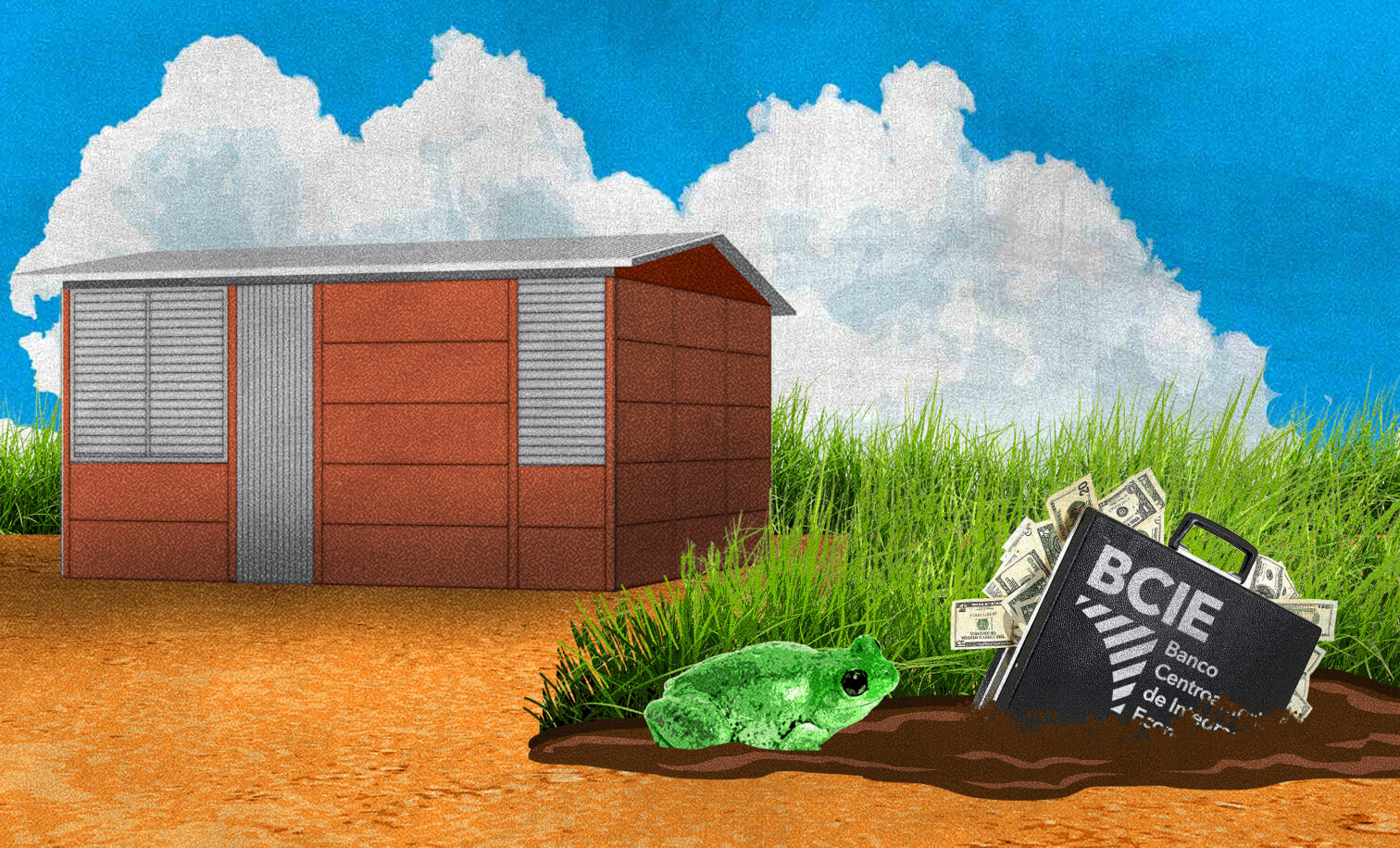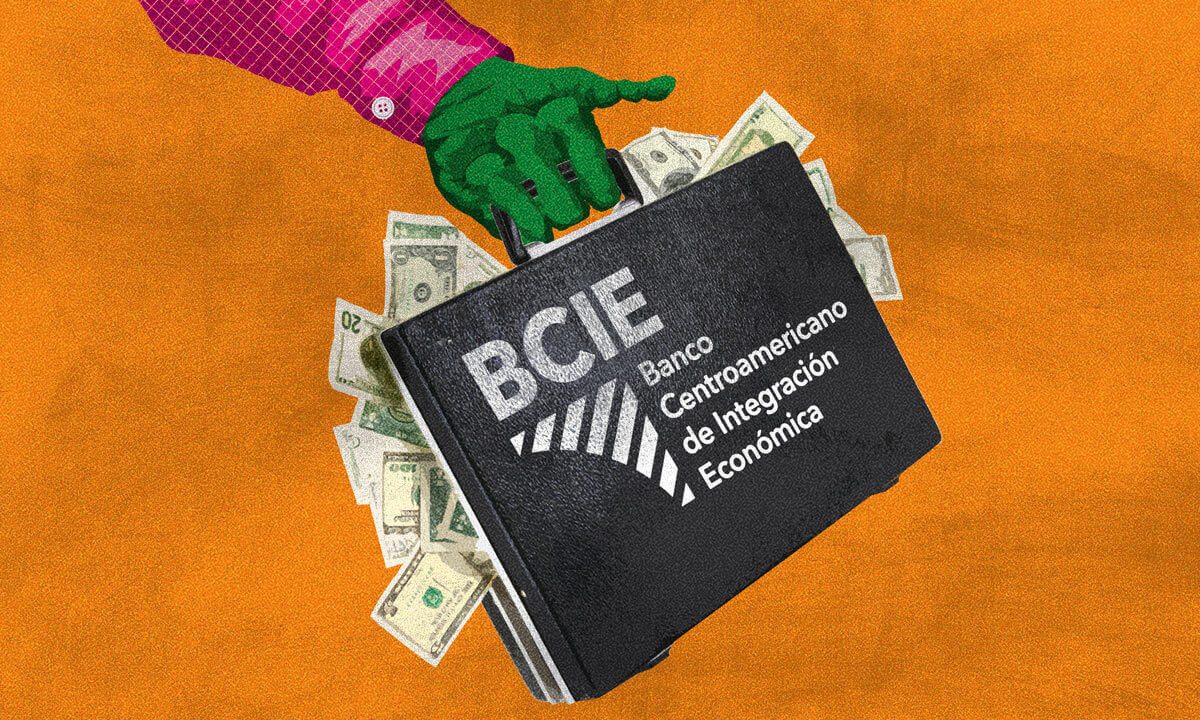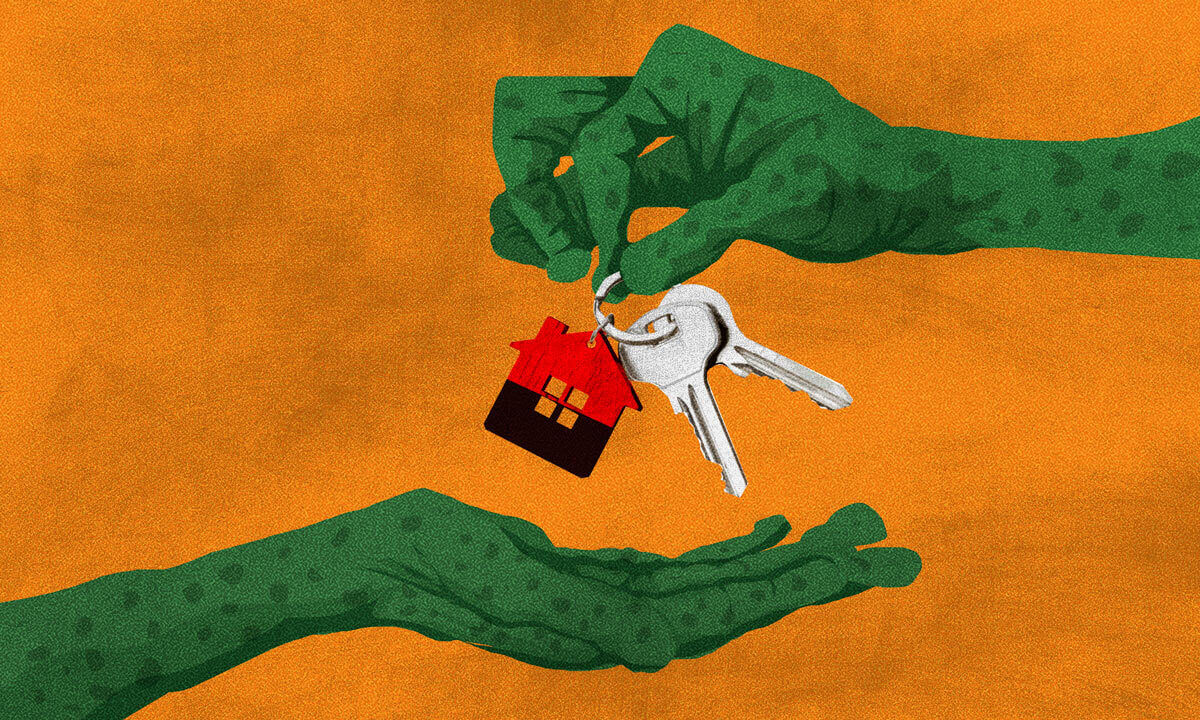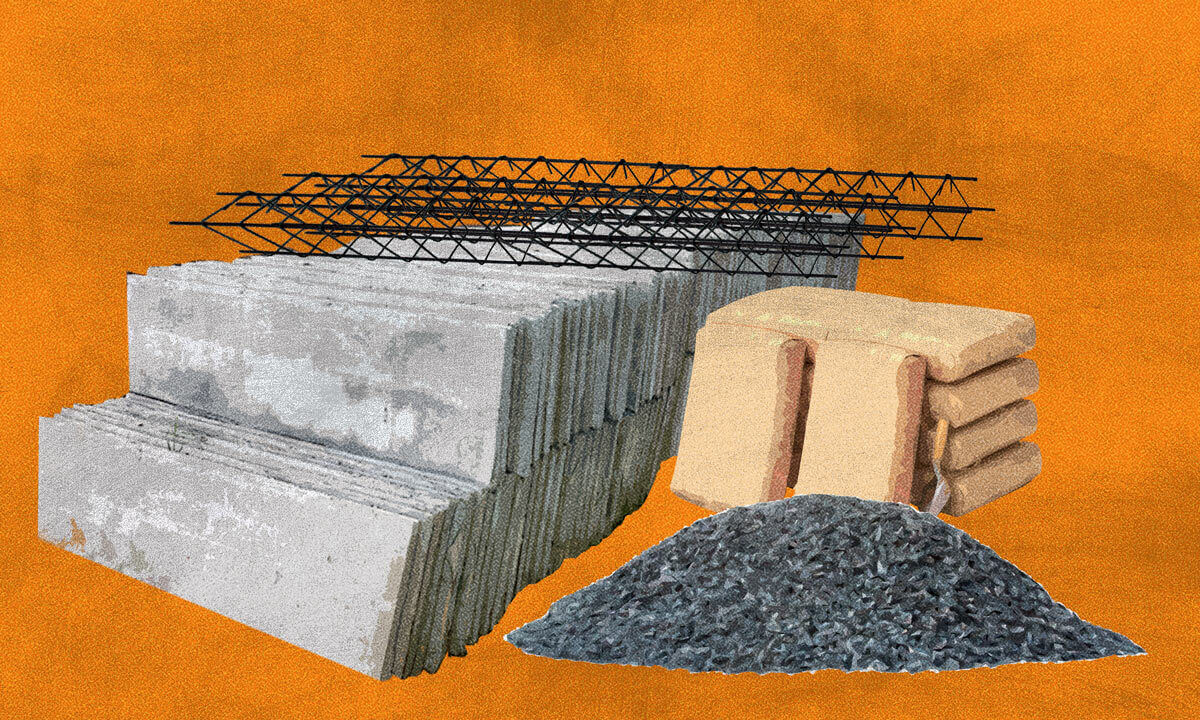

In August 2020, the Central American Bank for Economic Integration approved a loan to the Nicaraguan regime amounting to $171.6 million, aimed at financing housing for families in extreme poverty. Despite this project being “supervised” by the institution, its execution has been tainted by corruption and political favoritism. 55 Sandinista municipalities were tasked with executing the funds using the irregular system of simplified contracts, a process intended only for emergency situations, but used instead to favor businessmen close to the Ortega-Murillo dictatorship. The delivery of houses, according to testimonies obtained by DIVERGENTES, is conditioned to citizens who identify as Sandinistas. “It is a work ruined by the regime’s own decay,” explained a source linked to Orteguismo
By Néstor Arce | June 24, 2024
Ramiro‘s house is falling apart. Over the past five years, rain and sun have rotted the wall boards and roof. Through those holes, water, dust, and garbage seep in. “I’m going to fix it in a few months, before the rainy season starts,” says this 55-year-old man, who lives with his two children and wife, over the phone.
Ramiro speaks in a contagious sad tone. With what little he earns, he has tried to fix his house, but he has only managed to patch it up, with every hole eventually opening back up.
“There was a time when I thought everything was going to change. Back in 2021, they told me a housing project was coming and that I should submit letters. I did. I didn’t write one, I wrote several letters. Supposedly, I was on the list. But no, here I am still waiting,” says Ramiro, who lives with his family in a rural area of Muy Muy, a town located in the department of Matagalpa, in central Nicaragua.
The project mentioned by Ramiro started in early 2022 but was approved in August 2020. On this date, the Central American Bank for Economic Integration (CABEI) gave a loan to the Ortega-Murillo regime of $171.6 million.
This money would be destined for the construction of houses for families in extreme poverty in 55 municipalities in the departments of Boaco, Chontales, Jinotega, Madriz, Matagalpa, Nueva Segovia, Río San Juan, and the Autonomous Region of the Southern Caribbean Coast (RACCS).
The official CABEI information details that the program will facilitate access to housing for 18,660 families, “through the construction of 7,000 homes for families in extreme poverty through a subsidy scheme, and access to financing for the purchase of housing through a credit scheme and complementary subsidies to support an additional 11,660 families, administered through one or several bank trusts”.
According to the multilateral financial institution, as of February 2024, the construction of 9122 homes had been approved, of which 5863 have been completed, corresponding to 64.29% of the program.
The idea of the project, according to a source linked to CABEI who anonymously spoke with DIVERGENTES, was to do the study and planning in 2021, and then execute it in 2022. The beneficiaries were supposed to be families like Ramiro‘s, who do not have the economic capacity to improve their housing situation. However, everything has happened differently.
In theory, the municipalities were supposed to identify the most vulnerable families and then include them in the project and build, if possible, on the lands where their “houses” were previously located. In other cases, they could be relocated to land that the municipality deemed safe.
The Sandinista municipal authorities of Muy Muy never reached Ramiro‘s house, even though his house was on a hill, at risk of collapsing with any mudslide caused by rains. “I thought the project was a lie. Then I saw that they built houses for two families down here and I was happy. Their houses weren’t as bad as mine, but when it comes to help, that doesn’t matter,” says Ramiro.
But days, weeks, and months passed, and there was no official visit. Only a Sandinista representative came to tell him to be patient and wait for his “little house.”

“I’m not jealous. All of us who are poor need a house. But over time, I understood why they didn’t give me anything. It’s because I’m not a Sandinista like the others,” Ramiro says.
DIVERGENTES interviewed three family heads originally from Comalapa, in Chontales; Teustepe, in Boaco; and Telpaneca, in Madriz, with stories similar to Ramiro‘s. They were all included in lists, but were not benefited despite living in extreme poverty and being located in areas exposed to natural disasters. The reason, from what they could find out, is that since they were not “loyal” to the Sandinista Front, they were not a priority.
Sara, originally from Comalapa, does not have a Sandinista past. Her whole life has been away from politics, and during 2018, when Nicaragua rose up against the Sandinista regime, she, her husband, and daughter stayed at home to avoid being “affected.”
“I also didn’t vote in the elections and I’ve never been to protests. It’s just that I work every day and I don’t have time for anything. It’s supposed to be a government that supports the poor, but it always sets conditions,” says this 35-year-old woman.
Marcos, a Teustepe resident, also wrote letters addressed to Daniel Ortega and Rosario Murillo, as part of the political requirements demanded by Sandinismo to benefit from the program. He went to the municipality many times to ask if they were going to include him in the housing projects. However, a year later, he has received no response.
“I heard the same thing happened in Somoto. One doesn’t get involved in anything here and just wants to progress. But they don’t help us, and we only see bootlickers receiving those benefits,” recounted the 42-year-old man, whose family consists of his wife and two daughters under ten years old.
These people’s testimonies, according to the source linked to CABEI, are evidence that although this multilateral financial institution has “supervision” over the projects they approve for Nicaragua, they do not actually intervene in the proper execution of these works, and all they are concerned about is meeting an execution target.
“So the project’s execution has been tainted, first by political favoritism, and also by corruption,” said the source, who added that the Sandinista municipalities in charge of executing the funds have manipulated the system of simplified contracts, a process intended only for emergency situations, but within the Sandinista government, it has been used to favor businessmen close to the Ortega-Murillo.
The premise of CABEI with the approval of this loan for the construction of houses is to contribute to improving the quality of life of families in the informal sector who cannot afford decent housing, according to their official reports.
The bank’s official information states that disbursements began in a period of up to twelve months from the date of approval of the loan by the Nicaraguan Legislative Branch. The country has up to 60 months to withdraw the totality of the resources, counting from the first disbursement, made on July 18, 2022.
The total loan repayment term is 25 years, including a five-year grace period from the date of the first disbursement.
In a press release published on CABEI’s website in 2020, Dante Mossi, then-president, pointed out that the project implementation would also involve private sector housing developers and construction companies, as well as banking institutions.

However, according to a review of contracts carried out by DIVERGENTES, only seven awards, out of 289, were made to formally established construction companies.
The rest were granted to individuals and not to formal companies. Individuals who also lack experience in this type of construction. They are what are popularly known in Nicaragua as “construction masters.”
DIVERGENTES sent a request for information to CABEI for details of the project and to obtain a response regarding the misuse of Simplified Contracting at the time of awarding the works and the contracting of individuals and public officials for the construction of the houses. This is prohibited under Law 801, the Municipal Contracting Law.
The financial institution responded a week after the request was sent detailing general information about the project. However, in the face of questions of corruption committed by the municipalities, the multilateral did not give a clear answer.
“The loan contract between CABEI and the Republic of Nicaragua contemplates that all the norms and procedures established in the Policy for the Procurement of Goods, Works, Services and Consultancies with Resources from the Central American Bank for Economic Integration and its application norms must be complied with,” reads part of the email sent to DIVERGENTES.
“CABEI’s response makes it clear that they have been negligent with the supervision of this project. The evidence of favoritism and corruption is palpable. The fact that they say they abide by the country’s rules basically defines their policy of silence in the face of irregularities. It is not true that they do anything to curb corruption in projects that they supervise and finance,” explained an expert source in municipal budgeting and management interviewed for this report.
“The loan was approved in 2020. The municipalities were instructed to plan everything in 2021 and then execute it in total order in 2022 and the following years. But none of this happened. CABEI project supervisors reported that there was a lot of improvisation and favoritism in between,” explained the source.
The main irregularity in the execution of this housing project was the total abuse by the 55 municipalities of simplified contracting, a contractual figure admitted in Law 801, the Law of Municipal Administrative Contracts, but only for situations of emergency.
In the 289 contracts executed between 2022 and 2023, the municipalities used simplified contracting despite this project not being linked to any national emergency, and it could have been planned a year earlier in all the territories involved.
“It is clearly a misappropriation of funds or an inability to properly disburse resources. However, failure to plan properly is not an excuse to break the law. In any case, when you resort to a source of financing, the use of money is pre established. That’s common practice. There is no way to justify the use of simplified contracting,” explained a source knowledgeable in budgeting and municipal management, who requested anonymity for safety reasons.
The regulations justify using only simplified contracts “provided there is an emergency,” but also allow using the mechanism when there are “urgent situations not derived from disasters or public calamity.”

In other words, it is left to the free decision of the municipalities to classify some work or project as “urgent.” This legal situation has been used by figures of the Sandinista regime like Fidel Moreno, secretary-general of the Managua municipality, to benefit a cartel of businessmen in the capital with millions of dollars, as revealed by investigations by DIVERGENTES.
“It is a violation of the rules to resort to simplified contracting without being in an emergency situation. This measure has been adopted by public officials to evade the law. This process is clearly corrupt and lacks transparency,” explained the expert.
Using this contractual figure, according to a database compiled by DIVERGENTES, the 55 Sandinista municipalities irregularly awarded at least $43.6 million between 2022 and 2023 to handpicked contractors by the municipal authorities.
“All these irregularities were reported to the central office of CABEI. That’s why supervisors are hired, to oversee government institutions and assess whether the money is being properly used or not. But this information, although valuable, is not taken into account at the highest levels. CABEI is only interested in meeting its target and collecting the money,” affirmed the source linked to them.
In an interview for Redaccion Regional, a group of Central American media outlets of which DIVERGENTES is part, Gisela Sánchez, the new president of CABEI, highlighted that there would be a halt on funds to Nicaragua to “give more balance to the portfolio” and correct the missteps of the previous administration, referring to the period of Dante Mossi.
This management ended up seriously questioned due to the monetary support granted to authoritarian regimes like Nicaragua and El Salvador, regardless of the destruction of institutionalism, lack of transparency in the handling of resources, and serious human rights violations reported in those countries.
Sánchez stated that, despite the announcement of the halt to loans to Nicaragua, there has been receptivity from the Ortega authorities. “In the case of Nicaragua, there is a lot of openness so that we can safeguard and ensure the best use of resources. They also understand what their limits are,” the official affirmed.
According to the expert in budgetary matters, the Sandinista regime uses the simplified contracting figure because the legal vacuum behind Law 801 is so extensive that it does not conceive punishments or penalties for those who fail to comply or abuse the contracting mechanism.
The only thing the regulation states is that “when the situation to be invoked by this modality is the result of the lack of planning by the municipality or municipal sector, the officials who committed said omission will be personally responsible.” A rather abstract and ambiguous statement for the municipal management expert.

The scope of the project financed by the CABEI loan is an estimated 18,660 people between extreme poverty and low or moderate incomes. Between 2022 and 2023, according to the database compiled with contract and contractor information, 5,071 houses were built in 55 municipalities of Nicaragua. The total number of beneficiaries has not been officially reported by the municipalities.
The database by DIVERGENTES also revealed that municipalities mostly awarded the housing construction projects to individuals who bid, according to the contracts in our possession, without the support of a company specialized in this type of construction.
“That’s another irregularity that was reported to CABEI by supervisors. There are contractors who carried out projects in several municipalities and therefore made more profits. This suggests that there was planning, but only for the benefit of the contractors,” explained the source.
A cross-referencing of information from the database on the contracts executed for the housing project with information from the Nicaraguan Social Security Institute (INSS) revealed that the municipalities awarded more than two contracts to public officials working in other municipalities or state institutions, which is prohibited according to Article 75 of Law 801 of Municipal Administrative Contracts.
“Public officials from any branch of the State or municipalities, elected directly or indirectly, cannot be bidders, nor sign contracts of any nature with the municipalities, nor public employees who have participation in any stage of the contracting process, or in their case, decision-making power or influence in the process,” the law details.
Among the cases that DIVERGENTES could verify is that of Adner Danilo Ramírez Moreno, a civil engineer from the municipality of San Lucas, in Madriz, who works for the municipality earning a monthly salary of 15,993 córdobas. The municipalities of Matagalpa and Muy Muy decided to award him two housing construction projects in 2023, valued at $253,000.
Another documented case is that of the “architect engineer” Larry Janock Velásquez González, originally from the municipality of San José de Cusmapa and an employee of the same municipality. He earns a monthly salary of 21,336.38 córdobas and was awarded four housing construction projects in San Ramón and Matagalpa, in the department of Matagalpa; and El Jícaro and Wiwilí, in Nueva Segovia. The contracts total $738,700.
Employees of the state-owned National Electricity Transmission Company (Enatrel) have also been “benefited” with housing construction projects. This is the case of Oswald Esteban Díaz Ugarte, originally from San Miguelito, in Río San Juan.
In his case, the municipality of San Miguelito awarded him two contracts for the construction of 33 houses, valued at $311,535. Díaz Ugarte works in the central office in Managua and earns a monthly salary of 12,116.25 córdobas.

“What is perceived is that municipal authorities not only handpicked the projects but also bypassed Law 801 by awarding contracts to municipal employees or employees of other institutions. Any financial organization can punish this, but it is complex to know what happened with CABEI at the time of the execution of the works regarding these irregularities,” said the expert.
DIVERGENTES also identified the case of Elmer Octavio Andino Centeno, originally from the municipality of Somoto, in Madriz, and an employee of the Nicaraguan Postal Service. According to the documentation in our possession, the municipalities of Las Sabanas and San Lucas, in Madriz; and El Jícaro in Nueva Segovia, benefited him with three housing construction projects, valued at $393,209. The interesting thing in this case is that despite being a civil engineer, his salary in this institution barely reaches 4,997.08 córdobas.
“We cannot rule out that these names appearing as contractors are unaware that they were included in these projects as a kind of facade. Remember that the Sandinista regime has used citizens who have no information about these businesses to benefit themselves on other occasions,” explained a source linked to the Managua municipality, with extensive knowledge of municipal contracting, anonymously.
DIVERGENTES identified at least three more cases of public employees hired by the National Technological Institute and the Ministry of Education of Matagalpa, who, like the other cases of contractors mentioned in this report, have been “benefited” with housing construction projects, violating the regulations of Law 801.
According to the expert, municipal authorities cannot justify the lack of planning or the “handpicking” because they decided to benefit them with projects in municipalities of two departments in two continuous years, 2022 and 2023.
“Considering that municipal authorities always remain silent in the face of their acts of corruption. I believe that CABEI should be held accountable for these irregularities and explain why the supervisors of this project were not taken into account and why they allowed the laws that serve as a lock to prevent acts of corruption to be disrespected,” said the source linked to CABEI.
The houses built by contractors handpicked by the Nicaraguan municipalities are ok considering their value. An urban development expert interviewed for this report explained that while the constructions are not like those we usually see in the large residential areas of cities, the fact that they meet certain parameters makes them safe and stable places for the beneficiary families.
“Before being beneficiaries of these projects, families have generally lived in small spaces, in overcrowding, and without privacy. That is, the kitchen, beds, and even the bathroom are in the same room. There is not even the possibility of moving freely,” explained the expert.
The houses built with the CABEI loan include leveling of the land, structural excavations, tile walls, reinforced concrete, zinc roof coverings, and gypsum. They have details, flooring, windows with blinds, and above all a well-divided space to avoid overcrowding.
“An electrical system, optimal hydro-sanitary system, and eco-stove. The square is divided into a living room, kitchen, and two bedrooms. It is an ok house because it meets those parameters. Is it what every family deserves? That is debatable because the dream is to have a two-story house with many luxuries. What is delivered to these people is vital to improve their lives,” said the expert.
In the neighborhoods provided by the municipalities, it can be observed that the houses complied with what was described in the project contract and with the parameters detailed one by one by the expert. However, it is also noted that some houses were located on sites exposed to landslides or cliffs.
“The company or contractor in charge of the project, with the help of the municipality, should analyze these types of situations. Many times, the family is relocated to avoid exposing them. It is useless to have a new house if with the first rains of winter you are at risk of a landslide, for example. This is criticizable because planning should include these details,” continued the expert.
Ramiro, the head of the family we interviewed at the beginning of this report, expressed that he would like to first be benefited and then relocated because he knows the danger of living on a hill that, sooner or later, can be swept away by the currents from higher areas.
“I like the little houses they have built. It’s much more than what I have; it has those divisions. Anything is better than this shack that falls apart every day. They say hope is the last thing one can lose. I hope they fulfill their promise and benefit me, even if I’m one of the last,” Ramiro said.
In Ramiro’s neighborhood, the neighbors who have benefited from housing construction are living well. This man stated that the environment is different from his own. “Anyone with that roof, the rooms, the bathroom, and the kitchen lives better than me,” he says.


